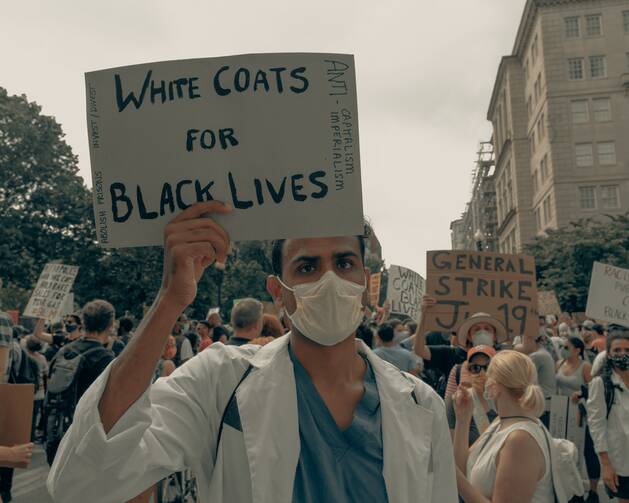Did you know that Black women are more likely to die from preventable childbirth complications than white women? Or that Black women make up less than 2 percent of psychiatrists?
This week on “The Gloria Purvis Podcast,” Gloria speaks with Dr. Amanda Joy Calhoun about the deep vestiges of racism in our medical institutions and the strategies she is using to challenge and correct them in her own practice. Dr. Calhoun is an adult and child psychiatry resident at the Yale School of Medicine. She is an expert at exposing racism in the medical system and mitigating the effects of racism on Black Americans.
Dr. Calhoun shares disturbing accounts of how she’s witnessed racism in the hospital setting, among both white patients and staff.
“It has little to do with the psychiatric illness. Mental illness is used as a scapegoat for racism,” Dr. Calhoun says of white patients who have lashed out with hate speech at Black patients. “But oftentimes these kids that are saying these N-words, they’re about to leave the hospital, they’re stable. This is just the word they use to describe people. It's not that they're in this episode where they don't know what they're saying.”
Just as troubling, is the preference white staff shows to white patients:
“Anecdotally, I had been looking at the fact that it seemed that predominantly white staff, which is medicine, were much quicker to put my Black patients in restraints than white patients.”
There is no standard training or treatment for dealing with racism in hospitals, but Dr. Calhoun is quick to provide her expert recommendation: “I use the word racist. I think we need to own it.”








